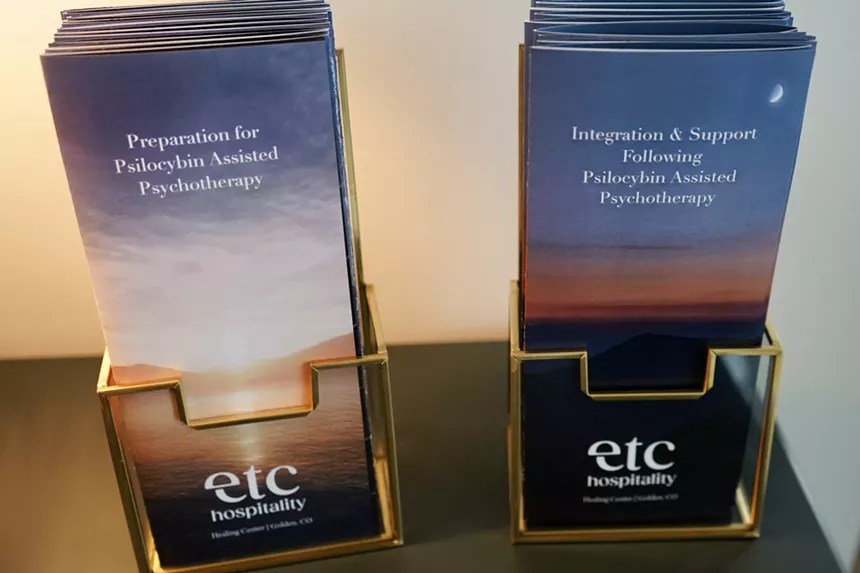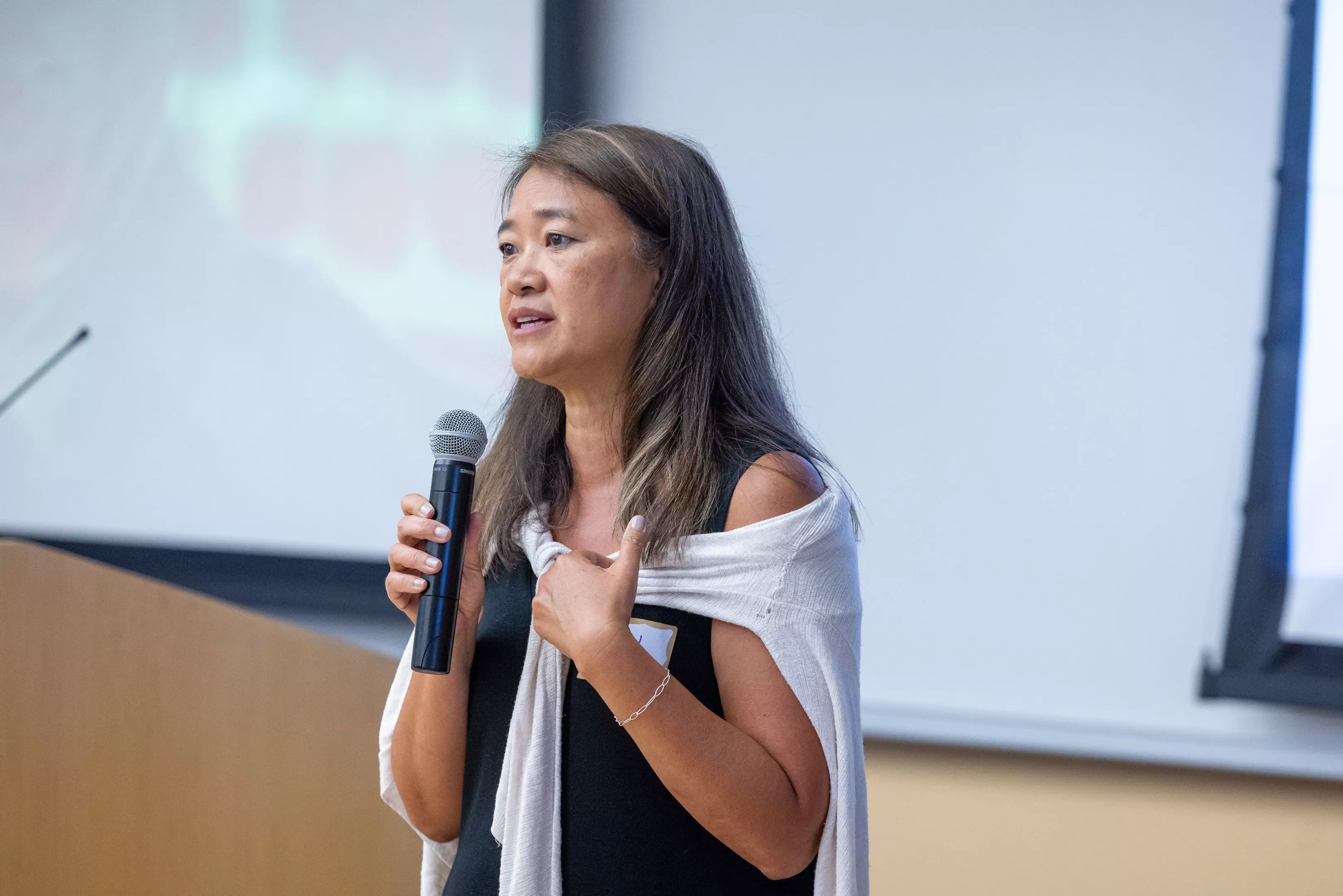
Jacob Curtis

Audio By Carbonatix
As natural medicine healing centers open around the state to offer psilocybin-assisted therapy, the University of Colorado Denver is preparing to launch its own program. The new set of courses, intended to train natural medicine facilitators, will come from the one-year-old Center for Psychedelic Research.
Dr. Vivian Shyu, a teaching professor in CU Denver’s psychology department and Director of Education and Training at the Center for Psychedelic Research, is spearheading the new program. Shyu’s background in cognitive neuroscience led her down the path of psychedelic inquiry “from that very science-y place,” she says.
Shyu completed MDMA facilitator training with the Multidisciplinary Association for Psychedelic Studies (MAPS) several years back when MAPS’s pharmaceutical company, Lykos Therapeutics, was applying for FDA approval for MDMA, which was eventually denied.
Although MDMA-assisted therapy hasn’t come online for the general public yet, Colorado voters approved the Natural Medicine Health Act, which allows licensed healing centers to offer psilocybin, or magic mushrooms, as part of a therapy session.
“[MAPS] laid out that part of what we have to do is be ready with our highly trained, ethical, safe facilitators,” Shyu says. “We’ve got to get thousands of people out there ready to deliver these practices.”
Colorado’s Department of Regulatory Agencies (DORA) created standards for the education of natural medicine facilitators, but these courses are offered primarily in the private sector. Boulder’s Naropa University spun off its facilitator training course into a separate entity, the Memoru Center for Visionary Healing Arts, earlier this year.
At CU Denver’s entry, students will have access to an academically focused psychedelic therapy program. The program is open to both clinical and non-clinical candidates, and applicants must complete a series of written interview questions, provide two professional or academic letters of recommendation, and submit their CV or resume for consideration.

Dr. Vivian Shyu is leading CU Denver’s upcoming natural medicine facilitator program
Courtesy: Paul Wedlake, CU Denver
The Center for Psychedelic Research, CU Anschutz Medical Campus and CU Boulder are doing cutting-edge research on psilocybin use for patients with a late-stage cancer diagnosis experiencing anxiety and other clinical trials in the psychedelic space. Shyu has worked as a co-facilitator with those patients in the National Cancer Institute-funded study, but is eager to begin training facilitators herself.
Providing education to become a psychedelic facilitator presents challenges for a university that receives federal funding, however, as psilocybin is still a controlled substance at the federal level.
Under Colorado’s new law, facilitators must participate in a forty-hour psilocybin practicum that includes time administering psilocybin, so students in the CU Denver program will need to collaborate with off-campus healing centers for those forty hours. The university’s Education and Training in Psychedelic Science and Facilitation will offer a sixteen-week hybrid program beginning in mid-October that provides the didactic portion of the training. The program’s clinical partners have not been announced yet.
Applications for the program are open now for students, and close for the fall cohort on September 22. Classes will meet on Zoom Monday and Thursday evenings. The cost of the program is $7,500, with an additional $250 to $400 for materials and fees.
“Our foundation is the university,” Shyu says. “We’re in a Center for Psychedelic Research, so we’re really heavily rooted in the academic, drawing from science and research as much as we can.” While the basics of the curriculum are set by DORA, Shyu believes her program’s rigorous academic approach will stand out from others.
According to Shyu, the program is focused on three elements: First, ethical integrity with respect and humility at its core. Second, psychedelic expertise to give facilitators a deep grounding in the field. And third, embodied presence, which Shyu defines as the ability to be present with the patient without bringing your own issues or problems into the room.
The program is intended to be small at first, but could grow in the future.
“We want to start slowly,” Shyu says. “We want to keep learning from all the other programs that are out there and what people are doing, and being ready for things to change – even the rules and regulations, we keep reviewing and meeting on them and rediscussing them. That being the case, we need to stay flexible.”